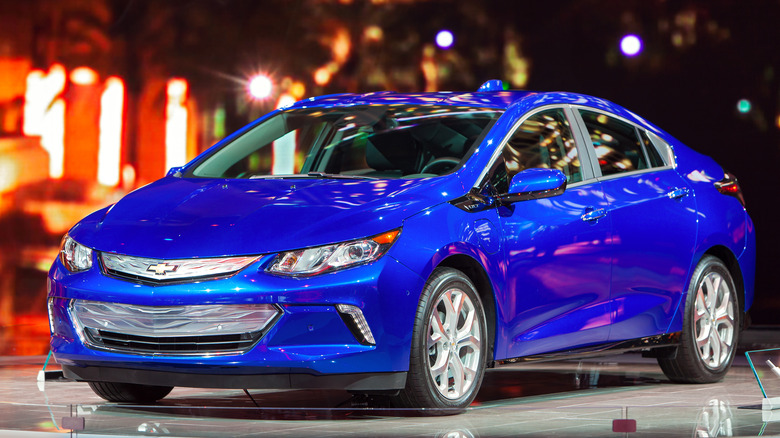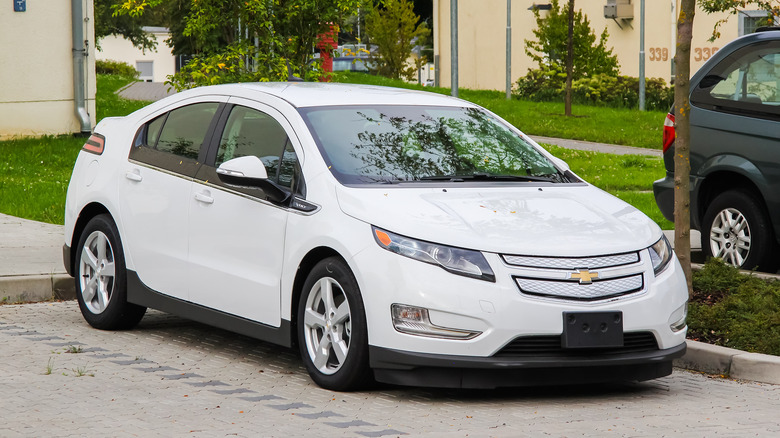Replacing The Battery Pack On A Chevy Volt May Cost More Than You Think
The Chevrolet Volt has won acclaim for its neat styling, ease of driving, and above all, the hybrid appeal that solves the range anxiety issue of electric motor-powered cars to a certain extent. But just like every battery with ions inside, the hybrid high voltage battery fitted inside the Chevrolet car also has an expiration date, which means a replacement is due when the performance degradation escalates. If you own a Volt that is due for a battery replacement, get ready to fork over nearly ten grand or more. While that's a staggering amount, do keep in mind this is a rough estimate, which means the final bill amount will differ based on the model year of the vehicle and the service location, too.
Chevrolet offers only limited warranty coverage for the Volt's battery, which lasts for eight years or 100,000 miles driven. On average, the kind of hybrid high voltage battery fitted inside the Chevy Volt lasts anywhere from 6 to 10 years. Chevy will offer free replacement if the battery gives up within that timeframe (or range), provided there are no signs of undue tampering. Needless to say, warranty coverage becomes an important consideration while looking for a battery replacement. In the case of pre-owned replacement units, the price can vary by a huge margin depending on its health.
Think twice before replacing
As per Repair Pal, replacing the hybrid high voltage battery fitted inside the Chevrolet Volt can cost anywhere between $9,210 and $9,335, before taxes and other fees. According to an analysis by Autoblog, which got in touch with a Keyes Chevrolet outlet in Los Angeles, the average cost of replacing the car's battery falls somewhere around $18,700. Based on the battery health status (whether it is a new or a repurposed unit), Volt owners can expect to pay anywhere between $3,400 and $34,000. Another key consideration is battery generation (PDF). The Gen 2 Volt battery pack (24 and 32-cell design) offered a useable capacity boost of 25% and a 9% increase in power over the Gen 1 pack (18 and 36-cell design).
However, it is always a good idea to get the battery replaced after every 100,000 miles. Some signs to look for that serve as indicators for an impending replacement are decreased efficiency and degrading charge retention. It is also worth keeping in mind that a dead hybrid battery can also cause other vital functions of the car to give up, possibly requiring the car to be towed to a nearby service center. At the end of the day, it might not be worth paying the full amount of a new battery replacement that touches the $35,000 mark when the same amount can be put toward the cost of another EV such as the Tesla Model 3.

